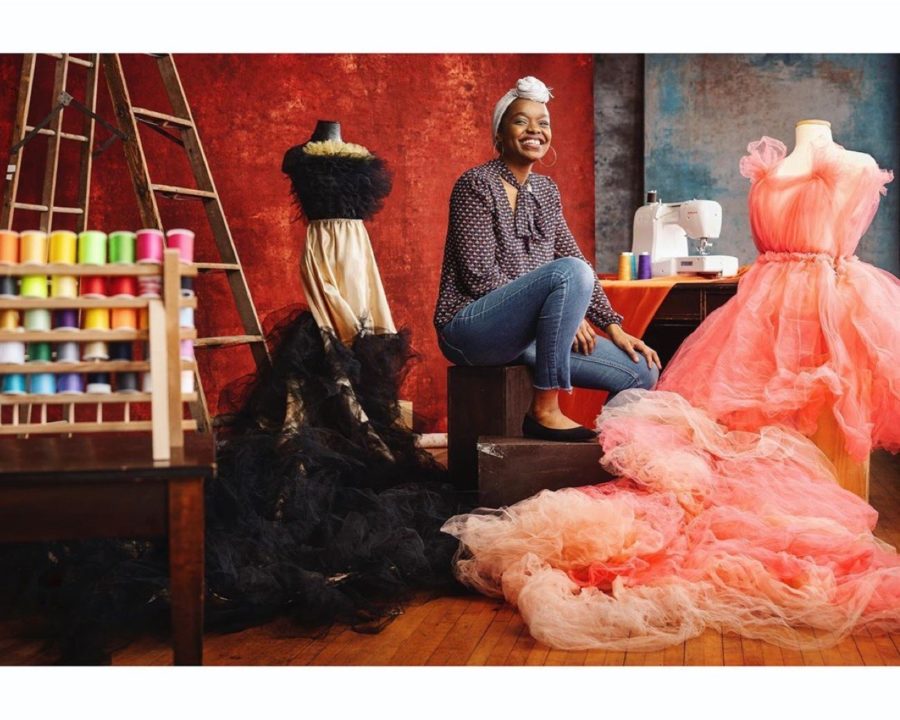Black-owned businesses: Belange Handmade
November 10, 2020
Since July, anti-racism books have soared to the top of bestseller lists as individuals make an effort to educate themselves, and Black-owned businesses have been searched up to 7,000 times more than previous years as supporters are putting their money where their mouth is.
Locally, there are 81 marginalized-owned businesses in Story County. Marginalized-owned businesses demand our attention — even when it’s not a “trend” to do so.
Many claims made at the beginning of the Black Lives Matter (BLM) movement were that individuals support the movement while it’s trending without genuinely wanting to support a Black-owned business otherwise.
In June, 67 percent of adults polled said they supported the BLM movement. Now, only 55 percent of adults show continuous support.
Belange Handmade, a Black and female-owned business, was founded by Belange Mutunda, a senior majoring in apparel, merchandising and design at Iowa State. Belange Handmade specializes in “luxury afrocentric” apparel and bridal fashions.
However, Belange Handmade started with purses when Mutunda was in high school. She had taken an old dress and repurposed it into a handbag, which she then took to school the next week. Impressed, her friends became her first customers and supporters.
“I didn’t have a sewing machine, I only had one needle and one thread, so I just started and I was really frustrated,” Mutunda said. “It took me five hours to figure it out. At the end of the day, I had my purse, and when I went back to school, one of my friends saw it and she was really impressed.”
After selling a repurposed T-shirt crafted into a purse, word of mouth assisted with the unexpected increase in Mutunda’s sales. Mutunda saw a need in the market for repurposed clothing before it became “trendy” to do so.
Throughout high school, Mutunda’s parents placed an expectation on her that she would pursue a career in either engineering, medicine or law. However, after her success with her business, Mutunda was convinced she was meant to pursue a future in fashion.
“My mom’s grandpa was a fashion designer during the time of colonization, so he used to make suits for high people in the community, in my home country,” Mutunda said. “I never met him, he died a long time ago, but I used to hear his stories. Fashion was something that I did outside of school, then I had found out that I had a passion for fashion.”
Because of this, Mutunda’s father gave her an ultimatum: if she was unsuccessful within the fashion realm, she would pursue engineering. After proving to her father that her business was successful and she expanded beyond transforming T-shirts into handbags and into making custom-wear clothing, he promised to send her to school to pursue fashion.
Mutunda graduated from Des Moines Area Community College in 2018 with an associate’s degree in fashion design and merchandising before choosing to attend Iowa State to complete her education.
Now, Belange Handmade specializes in custom wear for consumers and is in the midst of preparing a ready-to-wear line, set to be released in December. Mutunda was sure to conduct thorough research before deciding to manufacture a ready-to-wear line, as she has studied the harmful effects of overseas manufacturing and slave shops.
After conducting a case study in class, Mutunda is now more aware of the harmful effects of large-scale manufacturing.
“One thing that I would say is you have to be conscious about the brands that you support,” Mutunda said. “Ever since I started designing and doing research on manufacturing companies, I really lowered the list of all the businesses I shop from. I don’t care if they’re expensive as long as they’re doing the right thing.”
It’s important to Mutunda that her consumers understand the hard work and dedication necessary to craft a piece of custom clothing.
“This is going to be the first time getting my stuff manufactured and made by someone else,” Mutunda said. “I’ve always loved making everything by myself because when you get something from me, I want you to feel like it’s made for you, by me. The brand, the name that you see, it’s me who made it. I want people to actually respect my work.”
Mutunda feels Generation Z is a more outspoken generation compared to the ones that have come before it and aren’t afraid to call out businesses, companies and people on their wrongdoings.
“Brands have to be transparent about everything that they’re doing so people can actually support them,” Mutunda said. “In this time, everybody’s at home, everybody has time to check what you’re doing, everybody has access to the internet, so just be good to people. Transparency is a big thing for survival for businesses. My business isn’t about dressing people and making money, you really have to connect with people and understand people, speak their language, support them — business isn’t just about money anymore. Community is involved, the environment is involved, people are involved, so you have to be open-minded and see how you can help.”







